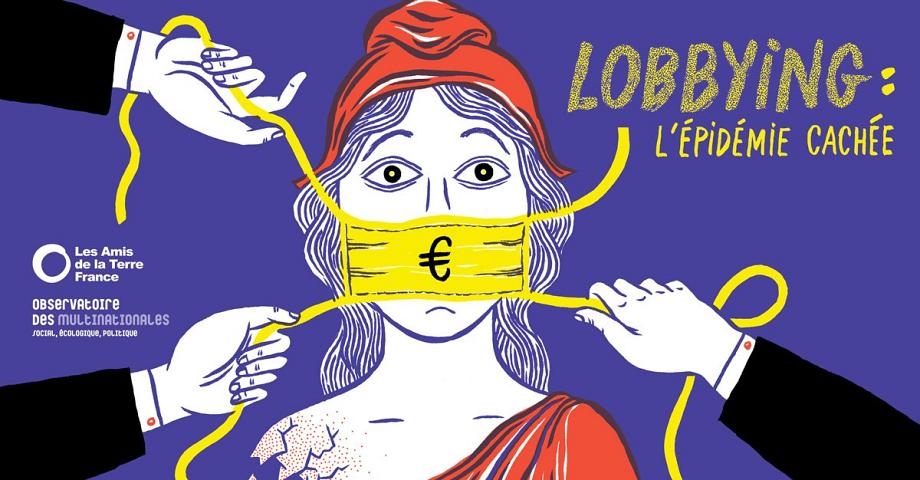Initially published in French. Translated by Leslie Thatcher, Truth Out
Nolwenn Weiler: Your inquiry covers regulation of endocrine disruptors, these chemical substances that are omnipresent in our daily lives and suspected of contributing to the explosion of modern illnesses. What’s the status of the issue?
Stéphane Horel: Endocrine disruptors (ED) are chemical substances that can interact with the hormonal system (endocrine means hormonal). These substances not only impact humans, but animals also, such as polar bears, cats and snails. Several categories of living beings are thus affected. Fetal exposure during pregnancy presents the greatest risk, even if exposure remains problematic at other periods of life. Life in utero is truly a crucial moment because it’s hormones that make babies. The effects of exposure at that moment may be visible at birth, with, for example, chemically induced genital anomalies, but also 20 or 30 years later, with the appearance of cancers, diabetes, obesity or infertility problems.
Endocrine disruptors are present in thousands of everyday objects: from shower curtain rings to sofas and toys, but also in blood transfusion bags and catheters. Most of these products have real utility: Phthalates, for example, are EDs that soften plastic. And bisphenol A (BPA), which is one of the best known EDs, allows the manufacture of a lining put inside cans to slow down metal corrosion. At present, no one has found an equivalent that is as effective over the long term. It is impossible to inventory all the places where one finds EDs. Every sector of industry is involved. In blood, mother’s milk, the air, dust, the rain - EDs are present everywhere. People estimate there are about 1,000 in circulation in the world, but there could be many more.
European regulation is in the planning process, but scientists alerted us to the problem with endocrine disruptors almost 25 years ago. Why has there been such a delay?

The Eureka moment for scientists concerning EDs was 1991. That year, about 20 scientists (toxicologists, zoologists, biologists and endocrinologists) got together in a little town in Wisconsin in the United States. During a three-day seminar, these scientists drafted what would be called the Wingspread Declaration, after the name of the conference center where the seminar was held. This declaration agonizes over the developmental changes effected by chemical products. The scientists stress the risks resulting from exposures in utero. And they cast doubt on the toxicological equation that says the dose makes the poison. For EDs, it’s more the timing that makes the poison. The Wingspread Declaration also warns, "Unless the environmental load of synthetic hormone is abated and controlled, large scale dysfunction at the population level is possible."
Since then, there have been thousands of scientific publications that demonstrate these products pose a problem. There is now a consensus on their danger. In 2013, the World Health Organization (WHO) published a report. Produced by about 20 scientists from around the world, all specialists in EDs, this report insists on the fact that EDs represent "a global threat." In 2009, then again in 2015, the scholarly organization the Endocrine Society said the same thing. Just a few weeks ago, the International Federation of Gynecology and Obstetrics called for the regulation of EDs, alluding to "pre-polluted babies."
Which industries that use EDs are organizing the lobbying aimed at short-circuiting the plan for European regulation?
They are, given the profusion of ED uses, very numerous. For lobbying, industries come together. First of all is the chemical industry (the European Chemical Industry Council or CEFIC), which is one of the most powerful in Brussels, with 150 employees and a budget of 40 million euros. That lobby brings together small and medium-sized companies, but above all, the big multinationals such as BASF, Syngenta, Bayer, Dow [Chemical] and DuPont. There’s also the pesticide lobby (ECPA, which, moreover, is also part of CEFIC), industries that are on the front line if there is ED regulation. Finally, there’s the plastics industry, and, to a lesser extent, Cosmetics Europe.
Donate
Independent information on corporate power is critical, but is has a cost.
DonateAmong the maneuvers used by these lobbies to block any regulation, did you come across the strategy of doubt and denial pioneered by the tobacco lobby?
Indeed! For endocrine disruptors, the first instance of the "manufacture of doubt" took place in 2012, following the publication of a report on the state of the science surrounding endocrine disruptors. Ordered by the European Commission, it was a state of the science put together by Professor Andreas Kortenkamp’s team. He is one of the chief global specialists on endocrine disruptors, independent of industry. This report concludes that "endocrine-disrupting chemicals warrant a treatment equal to that of substances as worrying as carcinogens, mutagens and reproductive toxins, as well as persistent, bio-accumulating and toxic products."
Their report was immediately attacked in the scientific literature. But that critique was financed by the US chemical lobby. It was written by two employees of Gradient Corporation - a firm of specialized consultants that works exclusively for industry - and by scientists who all work in the chemical and pesticide industries. Their reproaches are essentially methodological. The authors quibble over reference omissions and word choices; they split hairs over details. It’s a true "science washing" operation that aims to create the illusion that there’s a scientific controversy. That approach is effectively more presentable than to tackle the impact on businesses directly. The pesticide industry has moreover attempted to discredit Andreas Kortenkamp by sending emails to the Commission following statements he made to the British press.
What do the companies propose to address the vast public health problem their products have created?
The chemical industry has perfected a trick: They suggest dealing with the products with the most powerful effects. That amounts to skimming; they get rid of the so-called most dangerous and leave all the others alone. But that has no scientific basis since EDs can have an effect at very low doses. Their toxicity is such that it is not possible to maintain that there is a dose below which they aren’t dangerous. Moreover, people are exposed to dozens of EDs simultaneously. A study in the United States shows there are 43 on average in every pregnant woman. Forty-three! What is the result of these cocktails of exposure?
It’s particularly on account of these facts that the idea of "potency" makes absolutely no sense. Which has not prevented the Commission from considering it as a valid issue subject to its examination! The Commission’s General Directorate for the Environment, to which the preliminary work on the definition of endocrine disruptors has been entrusted, had, however, eliminated it after four years of work. That reveals a serious dysfunction of Europe. One goes nowhere with four years of work simply because the conclusions displease the industry.
Besides throwing doubt on independent scientific studies, the manufacturers attack the precautionary principle...
In Europe, the precautionary principle is inscribed in the texts and has the force of law, even if there is no precise definition. For the TTIP [Transatlantic Trade and Investment Partnership], it’s a principle that bars certain commitments, notably with respect to chemical regulation. It’s about our only ethical card against the all-powerful free market. And that’s the reason US manufacturers are determined to make it disappear during these negotiations. A think tank financed by tobacco, chemical and pesticide industry companies, as well as by oil firms, is trying to replace it with a "principle of innovation." The precautionary principle is inscribed in the Constitutional Charter of the Environment in France, and there have also been attempts at its elimination here. In October 2014, the UMP National Assembly member Eric Woerth submitted a bill for the replacement of the precautionary principle with "a principle of responsible innovation." Did he know that idea came from an obscure think tank founded and directed by the manufacturer of Lucky Strikes?
One year earlier, a letter signed by 56 scientists from around the world was sent to Anne Glover, the main science adviser to the [European] Commission president at the time, José Manuel Barroso. In this letter, the scientists complain about the criteria the Commission’s General Directorate for the Environment had resolved on to describe EDs. Notably, they deplored the precautionary approach. That letter, coupled with the publication of editorials in about 15 scientific reviews, is full of generalizations. But it will nonetheless serve as an alibi for the Commission to stop the process of ED regulation now underway. I’ve documented that the vast majority of scientists who composed this letter are affiliated with industry.
Why are the decision-makers so receptive to this lobbying?
It is very shocking to observe that the lobbies are met with such support from the decision-makers. Several factors explain it. In Brussels, power relations are such that the public interest is in the minority. The crushing majority of interest representatives belongs to commercial interests. The dialogue with the "stakeholders," i.e. manufacturers, replaces democratic debate. There’s a very important closeness between the world of political decision-makers and the business world. Moreover, Brussels allows a true geographic proximity. Everyone works in the same place and runs into one another in the normal course of things in the Brussels bubble. There’s also a staggering absence of training. Lobbying mechanisms are now understood and well documented. But European bureaucrats and elected officials have no training.
In European public institutions, there’s great confusion between the general interest and big business interests. To justify the two-year delay past the deadline on its obligation to regulate endocrine disruptors, the Commission is conducting an impact study: It will measure the negative impacts of an endocrine disruptor prohibition on the economy and businesses, but not the positive impacts of such a prohibition on health and the environment! People’s lives have come to enjoy lower priority than companies’ good health.
Interview by Nolwenn Weiler
—
Photo : CC Jacques Lebleu




